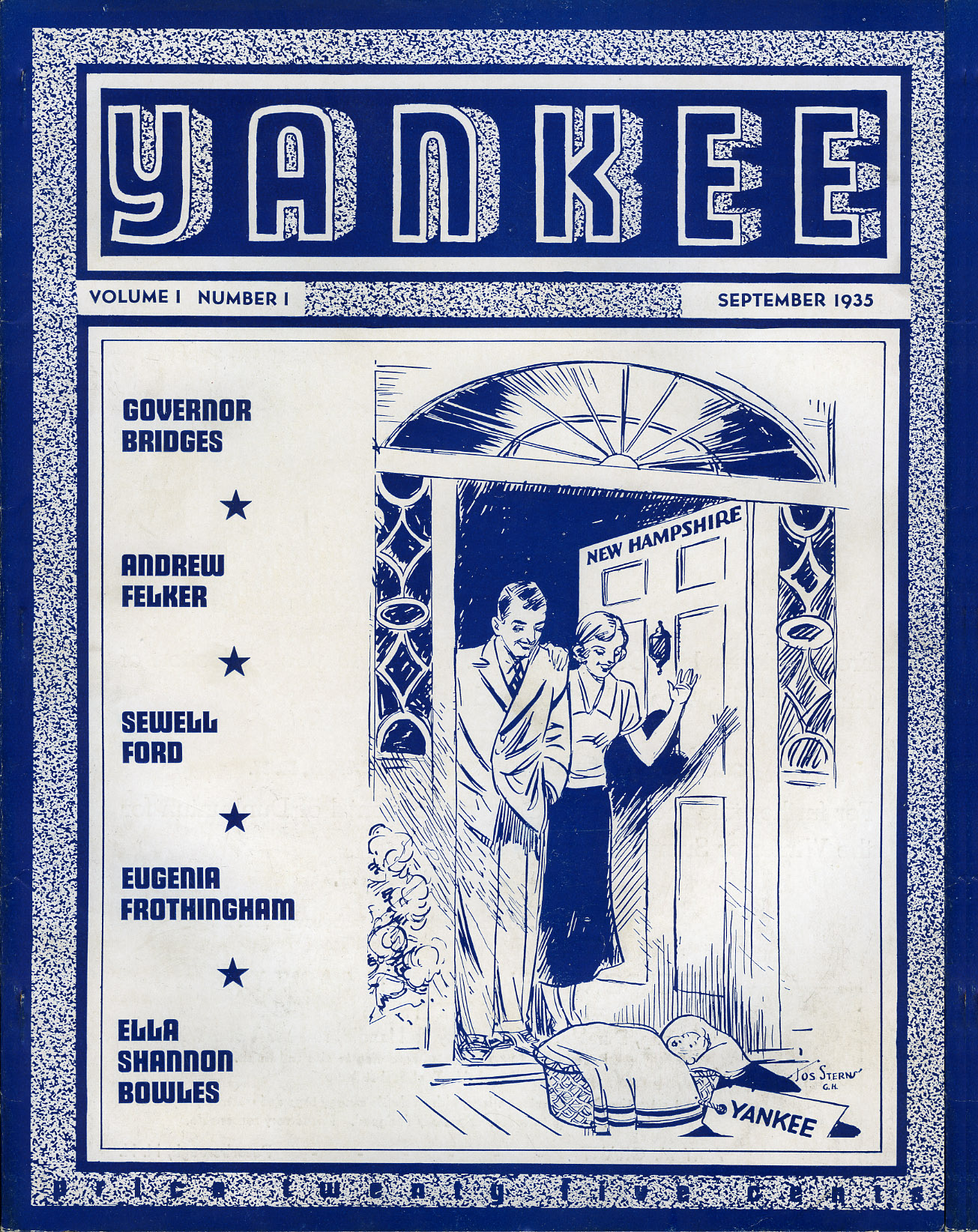Background on Yankee Publishing

First issue of Yankee, Sept. 1935
An independent, family-owned corporation based in Dublin, N.H., Yankee Publishing Incorporated is known as the parent to Yankee Magazine and Old Farmer's Almanac, two of the most enduring reflections (and sources) of New England's image of itself. Yankee was founded in September 1935 by Robb Sagendorph, a frustrated, Harvard-educated freelance writer who believed that New England needed a magazine "for Yankee readers, by Yankee writers, and about Yankee-dom," and with some difficulty, he found a receptive audience. The magazine's launch in the midst of the Great Depression began with a subscription list containing a respectable 614 names, but it was soon revealed that 600 of these were names plucked randomly from the Boston telephone directory by a fraudulent subscription agency.
Yankee was conceived of as a family endeavor and has remained so to the present. Sagendorph was an energetic editor and contributor, while his wife Trix provided illustrations and designed the magazine's popular covers into the 1960s. Despite lean early years, Sagenborph demonstrated a keen eye for public tastes and an ability to stay one step ahead. Even though Yankee was finding its audience in 1939, he took the risk of publishing publishing rights to the moribund The Old Farmer's Almanac, one of the country's oldest continuously published periodicals, and restored it to profitability.
During the early years, changes in Yankee's formatting and the addition of the popular Swopper's Column gave the magazine a distinctive personality and contributed to a steady rise in readership. Although forced to suspend operations in 1943 and 1944 while Sagendorph worked for the wartime Office of Censorship in New York City, the company maintained rights to its title alive by issuing a four-page flyer each year. Despite the disruption, the magazine held on to its subscribers, ninety percent of whom opted to wait for the magazine to return rather than settle for a refund. It was not long after the war's end that Yankee returned to a steady increase in readership. By the late 1950s, circulation topped 40,000, with Sagendorph becoming a popular figure in the New England media, lecturing regularly throughout the region and appearing on national radio and television, even as he helped usher the next generation into the family business. Jud Hale, Sagendorph's nephew, joined Yankee in 1958, shortly after his graduation from Dartmouth, and remained with the company for over fifty years. Rob Trowbridge, Sagendorph's son-in-law and an attorney, came on board in the early 1960s, and helped bring about a number of critical changes, from increasing the length of each issue to introducing the popular center spread printed in full color.
By the time of Sagendorph's death to cancer in 1970, Yankee enjoyed a circulation of over 400,000. As Hale succeeded as editor and Trowbridge as publisher, the company embarked on an ambitious, but not entirely successful course of expansion. Hale's efforts to raise the editorial standards of the magazine and the arrival of new editors and art directors paid off in doubling circulation during the decade, and in 1982, the company changed its name to Yankee Publishing Incorporated to reflect a planned expansion into other regional, specialty, and trade publications as well. While publications such as Alaska Magazine did not survive long in a turbulent marketplace, the core publications Yankee and Old Farmer's Almanac managed to adapt successfully, if not easily.
In 1999, Jamie Trowbridge (Rob's son) took over as President of Yankee Publishing and in the following year, Hale was appointed editor-in-chief as other editors were brought on board. Since then, the magazine has continued to respond to a shifting publishing landscape, replacing the fare of fiction, poetry, and history with an increase in coverage of food and lifestyle and expanding online by the mid-1990s. Yankee Publishing purchased McLean Communications in 2013, taking over its publications such as New Hampshire Magazine, New Hampshire Business Review, Parenting New Hampshire, and New Hampshire Home. The company remains as it has always been: family-owned.

